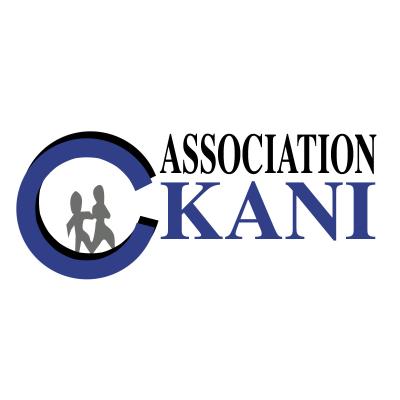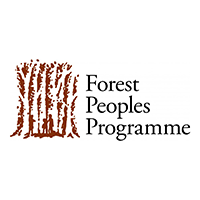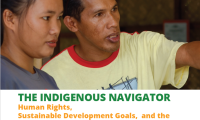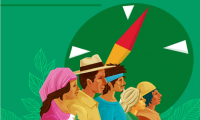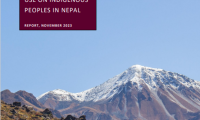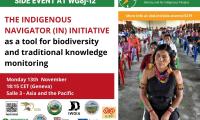Cameroon: Strengthening local alliances and forest associations using Indigenous Navigator data
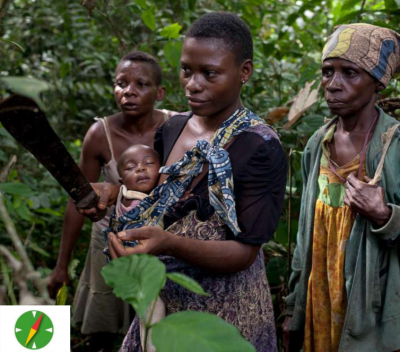
The Indigenous Navigator project is an opportunity for indigenous communities and their representative organisations to inform the world about the situation of their rights in Cameroon and to propose strong resolutions for an effective improvement of the current situation.
By Timothée Emini, Okani
Internal organisation of indigenous forest associations in Cameroon
The Indigenous Peoples of Cameroon’s forests are resolutely committed to mobilising and contributing to the recognition of their rights and their participation in public life in Cameroon. It is therefore key for them to assert themselves through dialogue events and exchanges with other actors who can be decision-makers or coaches in this struggle. It is with this in mind that they have taken the initiative, through their representative organisations, to form a platform called "Gbabandi", which has ten indigenous member organizations within it. This platform of indigenous forest peoples is supported through European Union funding to conduct and monitor the implementation of community-level micro project activities.

These indigenous organisations, members of Gbabandi, have set up a framework for quarterly exchanges where they will meet to review the implementation of micro-projects based in the pilot areas of the Indigenous Navigator project.
Association Okani facilitates the implementation of the Indigenous Navigator project in Cameroon.
Opportunities and location of micro-projects
The Indigenous Navigator project is an opportunity for indigenous communities and their representative organisations to inform the world about the situation of their rights in Cameroon and to propose strong resolutions for an effective improvement of the current situation. In order to specify which priority needs indigenous forest communities would like to see resolved or improved under the project, 40 communities undertook a questionnaire. In line with the results, they have decided to focus on citizenship as their advocacy priority, and have published a report on this issue. In line with their objective, the micro-projects will focus on the establishment of birth certificates in two pilot areas, namely:
- Mambele Zone (Boumba and Ngoko), Eastern Region;
- Bipindi-Lokoundje Zone (Ocean), Southern Region.
Events and exchange forums
In the context of the implementation of the Indigenous Navigator project in Cameroon, it was important to involve several actors in order to have an exchange framework between indigenous communities/Associations and other multisectoral actors. Currently three events have already been organised with the strong mobilisation of indigenous communities and other stakeholders.
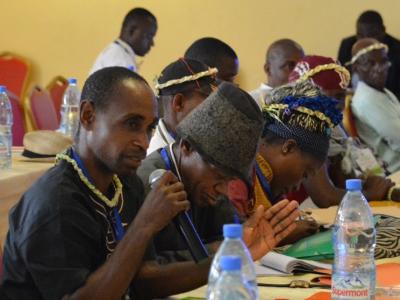
From 10 to 12 December 2018: National Dialogue on Indigenous Peoples' Rights and Access to Citizenship
Some 50 participants, including indigenous associations and community representatives, central administrations, mayors, civil society organizations, human rights networks, the National Commission on Human Rights and Freedoms, international human rights organizations, the European Union, traditional leaders, technical and financial support organizations, etc., attended the dialogue. It was a forum for discussion on the real situation of citizenship of the indigenous peoples of Cameroon's forests. And this space has enabled the administration to take accompanying measures to facilitate real access to civil status services.
From 11 to 13 March 2019: Local dialogue Mambele area
In order to better involve local actors in the dynamics of this project, a local dialogue was organised in the locality of Mambélé (pilot area for micro-projects in Boumba and Ngoko).
From 08 to 10 May 2019: Local dialogue in the Ocean area
This meeting brought together two districts (Lokoundjé and Bipindi). It was important and essential to highlight to the local authorities some of the difficulties encountered by indigenous communities regarding the preparation of civil status documents.
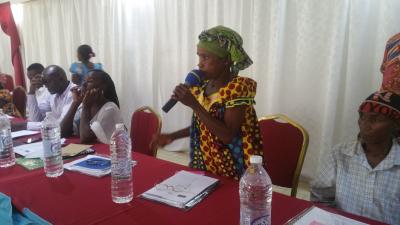
These various events have created frameworks for exchanges between indigenous forest communities and other administrative and civil society actors. The Indigenous Navigator project is a means of instigating dialogue on Indigenous Peoples' Rights issues in general, but more specifically on issues related to Indigenous Peoples' citizenship in Cameroon.
